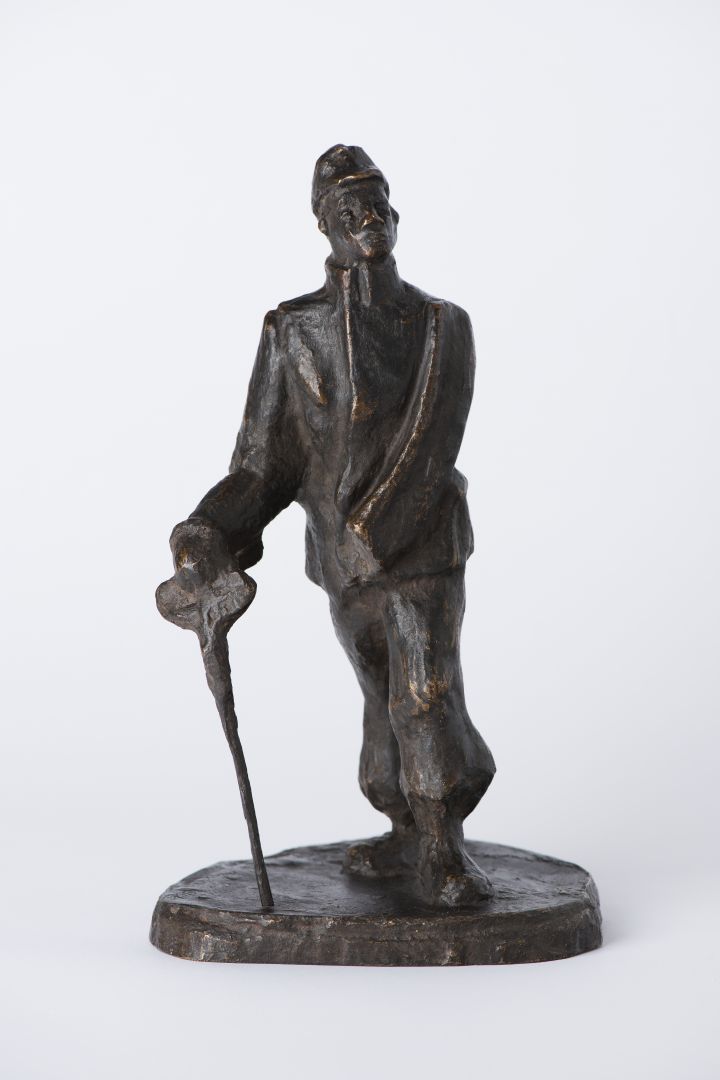The Experimental Youth - 3. view
Invalid Soldier
BOKROS BIRMAN Dezső
Újpest, 1889 – Budapest, 1965
Invalid Soldier, 1944
Dezső Bokros Birman was one of the most individual members of the young generation of sculptors who made their presence felt in the interwar period. His art simultaneously combined the sculptural traditions inherited from the great eras of the ancient past with meditations on the new directions of modern sculpture. Right from the start of his career, he set off uncompromisingly in search of his own direction, and his contemporaries in Hungary admired him as one of the country’s most influential exponents of the expressive vernacular in sculpture. In 1934 he joined the Group of Socialist Artists, whose members championed the ideals of the anti-fascist labour movement, in opposition to official forms of art.
Beck’s statues were often indirect, figurative reflections on social issues. His only explicitly anti-war work was the Invalid Soldier, which he made in 1944. The maimed veteran steps forward unsteadily, the left sleeve of his jacket rests empty against his torso, and his right hand leans on a sword, whose function now is merely as a walking stick. The shocking figure of the soldier, modelled with distorted gestures, is a monument to the nameless victims of senseless destruction.
